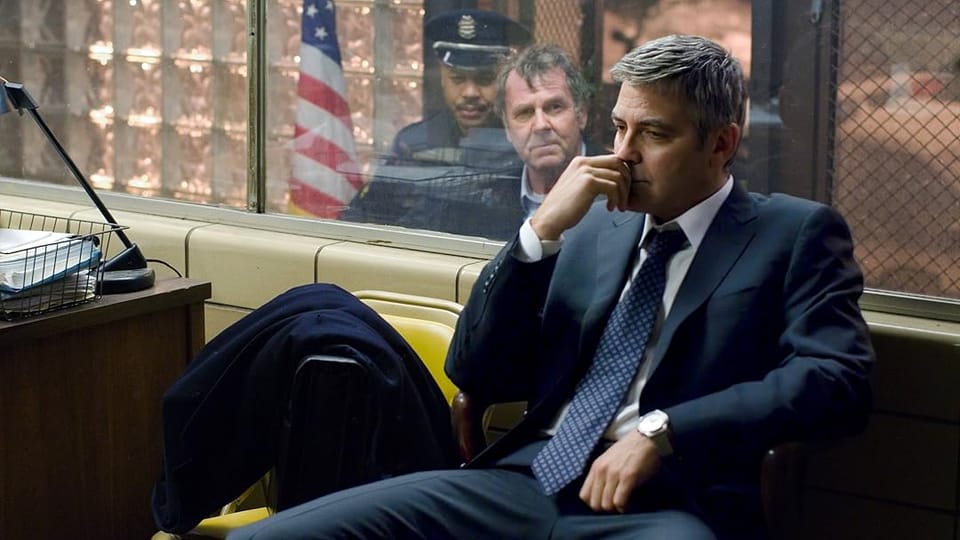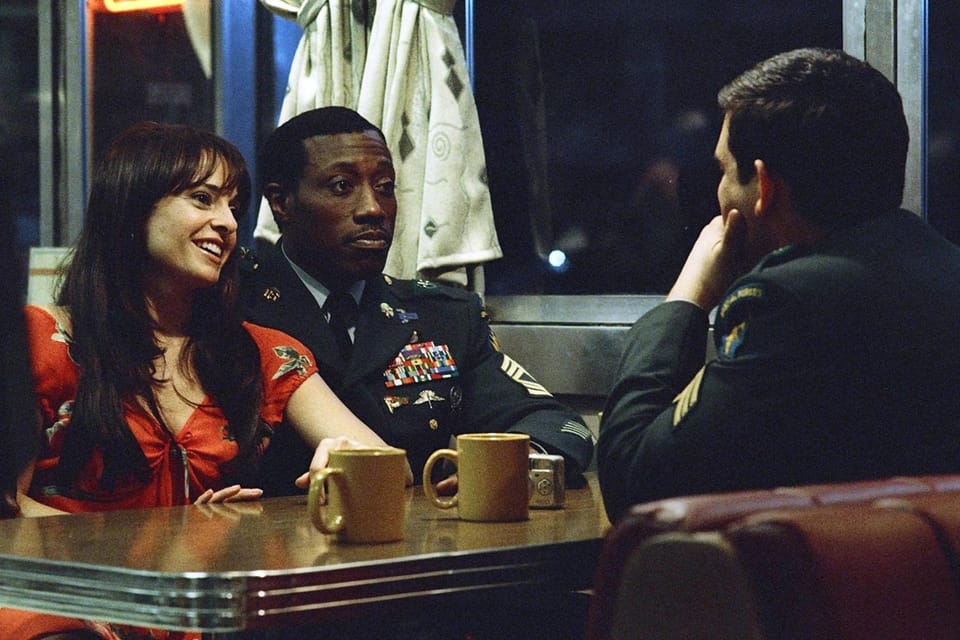4 steps to get more screenwriting done, even if it's not your full-time job yet.
We have to learn to write when talent doesn't show up. We have a job, and sometimes we gotta punch the clock.

The Story and Plot Weekly Email is published every Tuesday morning. Don't miss another one.
The New Year is coming, and this often means annual resolutions. I am personally terrible at resolutions so I stopped doing them.
What I found, however, is that I am pretty good at goals. We are creative people and tend to see our work as intangible, but goal setting and execution are seriously underrated skill sets for screenwriters.
We have to learn to write when our talent doesn't show up. We can't wait for inspiration or perfect conditions. We have a job to do, and sometimes we just gotta punch the clock.
While I understand you don't subscribe to this email for productivity hacks, getting better at these four things has made a huge difference in my writing and I hope they will for you as well.
So, let's get to it. First things first:
1) Change your limiting beliefs.
Our beliefs shape our reality, and many beliefs limit our choices. These beliefs are not facts, yet we treat them as such.
Some examples of limiting beliefs:
- I am too old.
- I don't have time to write.
- I live too far from Los Angeles.
- Others are more talented than I am.
The key is to identify that we have the limiting belief so we can reframe it into what Michael Hyatt calls a "liberating truth."
Some examples of liberating truths:
- I have more life experience.
- I have enough time to tackle what's important to me.
- I have a lower cost of living, which gives me more time to write.
- No one can tell my stories the way I can.
We will often insist that our limiting beliefs are us just being "realistic" and that anyone who suggests otherwise is a hippie-self-help-delusional flake.
But my experience is that as soon as you accept that limiting beliefs are real, you will recognize them everywhere. You will see how much they control others, and you will want no part of that self-sabotage.
Spot your own limiting beliefs, and reframe them to liberating truths.
2) Learn To Say "No."
Every time we say "yes" to something, it takes resources from something else. Our time and energy is finite. Say yes to enough things, and eventually, there are no resources left for ourselves.
So we have to say no. We have to set boundaries and establish our priorities.
Of these four things, this is the one I find the most challenging. I want to help, and I want to be liked. This goes for my personal life, my writing, and my teaching. I say yes to things I shouldn't say yes to, and it does a disservice to both me and the person or thing I said yes to! I agreed to do it, yet I often end up resenting it.
Avoiding the discomfort of telling someone no is absolutely not more important to me than my writing, so why do I make decisions that says that it is? It's ridiculous.
What has helped me here is to have a plan. Have a set response. Know exactly what you are going to say when someone makes a request for your time that is not aligned with your priorities. The more you know what to do before it happens, the less likely you will give in to it.
You must protect both your time and your creative energy. That starts with saying no to less important things that want to eat away at them.
3) Make Time.
My most successful strategy for this was to escape the mindset of “finding" time and to embrace the idea of making time.
I thought it was a small thing at first, but it wasn't. Do not wait for the opening to emerge. Schedule the time. Carve it out in the calendar, and treat it like any other appointment.
We feel terrible when we break commitments with other people, yet think nothing of it when we break commitments with ourselves. Stop doing this.
If someone wants your time and energy during this set time, decline. You're booked. You have a previous engagement. You're busy. Find another time to do it (See "Learn to say no" above.)
There may be emergencies or other things that genuinely demand your time, but even then, reschedule that appointment with yourself.
The important thing is to keep the commitment. Always keep it. Honor it.
4) Be Specific.
Know exactly what you want to achieve before your writing session even starts. Be specific about it. Don't make your goal, "- Write for 3 hours." Instead, your goal could be, "- Write the scene where Julie finds the car."
The more general I am about what I expect from myself, the higher the chances I spend my time staring at the screen, dabbling on the internet, or discovering a new desire to do chores.
If "- Write 5 pages" is working for you, by all means, keep going. But if it's not, it might be time to abandon it for more specific goals like:
- Write the inciting incident.
- Rewrite Sequence 1.
- Brainstorm "What do we want to see?"
- Break Act 2B.
- Perfect the logline.
- Write the high school scene.
This goes for whether you are writing scenes, or working through a systemized process to get there, like what Idea To Outline offers.
Make a plan for the day, make it specific, and you can get started as soon as you sit down.
The new year is coming
The change of the calendar shouldn't really affect our behavior. If something needs to change, we should change it then and there. But if the new year gives us the excuse we needed to set some goals, why not take it?
Just like we break up a screenplay into acts, sequences and scenes, we break up our long term goals into the annual, quarterly and daily goals.
If we don't get those daily goals done, the larger ones don't have a chance.
That's a wrap for this week!
The next time we talk it will be the new year. I've got a good feeling about 2024. I hope you do, too.
Happy New Year!
See you next week.
Tom
The Story and Plot Weekly Email is published every Tuesday morning. Don't miss another one.
When you're ready, these are ways I can help you:
WORK WITH ME 1:1
1-on-1 Coaching | Screenplay Consultation
TAKE A COURSE
Mastering Structure | Idea To Outline




